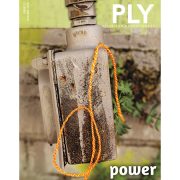Trying harder to support BIPOC
Many of you are aware of the talks happening on racism in the fiber community. If you’re not aware, please make yourself aware now. It’s important stuff, some of the most important stuff, in fact. And it does impact you, even if you think it doesn’t. Especially if you think it doesn’t. I know it’s hard to be called out. I know we’re all fragile beings that, I hope, go through life trying to do our best to be good people. And if that’s true about you, like it’s true about me, this is gonna be hard. Yes, it’s hard, but realize it’s the right thing and the company you’re in is huge. HUGE. If we all try, we can make a difference.
I know that some of you might say “but I just want to knit and be happy” or “I just came for the fiber/knitting/spinning” but that’s just not how life is. I’m sorry. I wish it could be that easy for everyone but it’s not. And until it is that easy for everyone, it can’t be that easy for anyone. Believe me, BIPOC (Black and Indigenous People/Person(s) of Color) just want to knit and be happy too, they just came for the fiber/spinning/knitting too but the color of their skin combined with a history fraught with injustice and a present rife with hate and fear, makes that an impossibility. Can you imagine? Really, can you imagine? We think we can, but the truth is, we can’t. We can’t imagine what it’s like to be different than we are, not really. We have to listen and believe when others tell us how it is for them.
It’s up to us to help make the fiber community safe and welcoming for BIPOC. Not being actively racist is not enough. You’ve got to actively be inclusive. You’ve got to actively be anti-racist. You’ve got to actively seek out BIPOC as designers, as spinners, as dyers, as companions. And I hear you again, “But why? Isn’t it more fair if I just purchase their wares when and if they appeal to me? That seems less racist, just taking race out of it.” Except that’s not actually feasible in the world we live in. It’s not. You are far less likely to see their work, their designs, their dyed fiber, their spun yarn because of our current paradigms. For now, we’ve gotta do a little work to make the world a better and safer place.
And don’t just make a change real quick because it’s being talked about in this moment. Make a change, yes, but keep doing it. We’ve gotta change ourselves, train ourselves. The world has trained us for far too long to think other and different means negative and/or invisible, we need retraining. It’s hard work and it’s ongoing work. It’s easier to settle into our comfortable lives and “just knit” or “just spin” but don’t. Work to make the world better. That’s what we’re here for, my friends. That discomfort you’re feeling about this subject, dig into that. Examine your feelings of defensiveness, your impulse to silence this conversation, your desire to have this conversation on your own terms, your need to say “you’re just here for the fiber”. LISTEN to the voices of BIPOC in our community before you brush this conversation aside.
PLY will be doing just that. The work. PLY welcomes and encourages BIPOC to write, to design, to model, but we need to do more. We don’t do enough. We made a decision on day one to actively seek and feature BIPOC models. But we are going to do more. We are going to actively seek BIPOC as writers, spinners, designers, dyers, and teachers.
I hope you’ll take this in with the love and peace with which it’s written. I’m white and I’m at fault. I try and will continue to try to be a better ally. I hope you’ll join in listening and fighting for what’s right.
jacey





Thank you Jacey! It’s uncomfortable for sure for those who are used to not having to look or deal with the deep inequity around us. I can only imagine it is unimaginably more painful to live with it everyday.
Surely I can let go of my comfort and give my attention to those who are hurting. I look forward to seeing more voices in PLY. The variety of viewpoints has always been one of my favourite things about the magazine and more voices will be even better!